The countdown has begun. The announcement of assembly elections in five states has set the ball rolling for the great show, which will culminate in the Lok Sabha polls next year
The countdown has begun. The announcement of assembly elections in five states has set the ball rolling for the great show, which will culminate in the Lok Sabha polls next year
Madhya Pradesh -Four the merrier
A quadrangular fight will be witnessed for the first time in the electoral history of Madhya Pradesh, which has traditionally seen a two-party contest. In the state’s 50 years of existence, voters had to choose between the Congress or BJP.
This time round, Uma Bharti’s Bhartia Jana Shakti and Mayawati’s BSP would be major players in the ring. Uma’s new outfit is watching the unfolding scenario and is likely to encash on the dissidence in the BJP. The BSP in its new all-caste party avatar has already declared it would contest from all 230 seats. Both Uma and Maya’s parties would dent BJP and Congress chances.
Having seen three chief ministers in five years — the longest serving being Shivraj Singh Chauhan—the BJP may not acutely feel the anti-incumbency pinch as there is little anger against Chauhan personally, but there are other issues. This is, however, the first time that any BJP government could complete its full term in office. In 1992, the two-and-a-half-year-old Patwa government fell in the wake of the Ayodhya demolition while the Janata government of 1977 too collapsed in less than three years.
When Digvijay Singh’s 10-year-long stint ended in 2003, the BJP rode an unprecedented popularity wave on assurances to provide a government with a difference. But on the eve of the polls, people feel cheated on many counts. They complain the unbridled corruption in the state has dwarfed what prevailed under the Congress regime. “I thought my leaders would actually be different from the Congress ministers but they proved to be more ruthless when it comes to making money,” complained an Indore lawyer associated with the BJP for long.
The Congress house is clearly divided. When Suresh Pachori resigned from the Union cabinet and was made PCC chief, he was expected to infuse life into the dull party apparatus. But he is seen to be supporting Bramhins over others. Meanwhile in Delhi, Kamal Nath, Digvijay Singh and Jyotiraditya Scindia are fighting to get more tickets for followers.
Chhattisgarh - Naxal nuisance
In this naxal-affected state, reserved seats are 44 or almost half the total, of which 34 seats are reserved for STs who comprise over a third of the population. Backwardness of the state and corruption are the main issues here. BJP chief minister Raman Singh will have to battle the anti-incumbency factor. As for the Congress, former CM Ajit Jogi has been in trouble over alleged forging of an ST certificate and a murder charge against his son.
Rajasthan - At babudom’s mercy
The BJP which came to power in 2003 elections with a clear majority faces an anti-incumbency wave. The party then rode to power with 120 seats defeating the Congress. The situation is not lost on the BJP which plans to drop one of every three MLAs and introduce fresh faces in the polls.
There is a strong wave against the BJP among the Gurjars who led the most violent agitation for quota in government jobs this year. A split in the community followed after a faction led by rebel Gurjar MLAs in the BJP openly denounced the reservation offered by the Vasundhara Raje government and has vowed to fight against the party. BJP’s strong base of ST voters has also stepped aside after their leaders opposed the inclusion of Gurjars in their quota pie. Stalwarts such as Kirori Lal Meena have resigned from the cabinet and are boycotting crucial party meets before elections.
The Congress sees resurgence in the state but its chances of a robust pullback have been dented with its dilemma over fielding a chief ministerial candidate against Vasundhara Raje. The Jats are thoroughly opposed to Gehlot after his previous term even though he is a clear winner within the party for the post. With BSP planning to contest on all seats, it is likely to play a spoilsport.
In such a scenario, both the parties are wooing the 7 lakh-strong government employees who played a decisive role in bringing Raje to power in 2003. Raje has given them a five-day week and implemented the Sixth Pay Commission. The Congress is promising them the moon. A reluctant Gehlot publicly apologised to them for his stand on pay cut of employees who had gone on strike for two months while he was the chief minister.
Delhi - Landslide or letdown?
Sheila Dikshit’s government has been in power for two consecutive terms and the BJP, buoyed by its success in the municipal corporation polls, is pinning its hopes on the anti-incumbency ire.
Another feature the BJP sees in its favour is the growing clout of BSP supremo Mayawati among the dalits, further fuelled by her prime ministerial ambitions. The increase in BSP’s vote share would cut into Congress votes, BJP strategists contend.
The Congress also has typical problems of its own and there are many in the party who would like to see Dikshit go. The BJP also suffers from rivalry among top state leaders, but they are not likely to be so damaging in their role. They are more likely to remain unenthusiastic or lie low in campaigning.
One feature of Delhi elections has been that the city-state generally votes in a one-sided manner, giving a landslide victory to one party or the other. The Congress won 47 of 70 seats in the last polls for the second consecutive time.
But the Congress cannot be written off. People feel Sheila Dikshit, a wily politician, would still pull off some trick. She is likely to attract more voters from among the large immigrant population from Bihar and Uttar Pradesh.
Muslim voters, given the pervading feeling of victimisation in the wake of terror attacks, are yet an undecided factor.
Mizoram - Church holds key
The state is still beset by strife between different tribes with the dominant Mizos holding sway. A few smaller tribes feel unprotected but have little clout to make their presence felt. This is also a state with over 90% literacy, mainly owing to the Christian missionaries. The church plays a dominant role in the elections and can also be a deciding factor. Observers feel the church may support the Congress in the polls. Chief minister Pu Zoramthanga’s Mizo National Front is in power.
![submenu-img]() Meet man, an Indian, whose family topped list of richest people in the UK with net worth of...
Meet man, an Indian, whose family topped list of richest people in the UK with net worth of...![submenu-img]() Pune: Tanker explodes in Pimpri Chinchwad, nearby hotels, houses and parked trucks damaged
Pune: Tanker explodes in Pimpri Chinchwad, nearby hotels, houses and parked trucks damaged![submenu-img]() Rohit Sharma lashes out at IPL TV broadcaster for 'breach of privacy'
Rohit Sharma lashes out at IPL TV broadcaster for 'breach of privacy'![submenu-img]() Heeramandi lyricist AM Turaz on Azadi: 'Women's contribution in Indian freedom movement has never been...' | Exclusive
Heeramandi lyricist AM Turaz on Azadi: 'Women's contribution in Indian freedom movement has never been...' | Exclusive![submenu-img]() Kangana Ranaut reveals if she will quit films after winning Lok Sabha elections, calls Bollywood 'jhoothi duniya'
Kangana Ranaut reveals if she will quit films after winning Lok Sabha elections, calls Bollywood 'jhoothi duniya'![submenu-img]() Meet IAS officer, daughter of milk vendor, who cracked UPSC in second attempt, secured AIR...
Meet IAS officer, daughter of milk vendor, who cracked UPSC in second attempt, secured AIR...![submenu-img]() UGC NET June 2024: Registration window closes today; check how to apply
UGC NET June 2024: Registration window closes today; check how to apply![submenu-img]() Meet IAS officer, son of teacher from Rajasthan, who cracked UPSC after multiple failed attempts, secured AIR...
Meet IAS officer, son of teacher from Rajasthan, who cracked UPSC after multiple failed attempts, secured AIR...![submenu-img]() Meet IIT graduates, three friends who were featured in Forbes 30 Under 30 Asia list, built AI startup, now…
Meet IIT graduates, three friends who were featured in Forbes 30 Under 30 Asia list, built AI startup, now…![submenu-img]() Meet woman who cracked UPSC in fourth attempt to become IAS officer, secured AIR...
Meet woman who cracked UPSC in fourth attempt to become IAS officer, secured AIR...![submenu-img]() DNA Verified: Is CAA an anti-Muslim law? Centre terms news report as 'misleading'
DNA Verified: Is CAA an anti-Muslim law? Centre terms news report as 'misleading'![submenu-img]() DNA Verified: Lok Sabha Elections 2024 to be held on April 19? Know truth behind viral message
DNA Verified: Lok Sabha Elections 2024 to be held on April 19? Know truth behind viral message![submenu-img]() DNA Verified: Modi govt giving students free laptops under 'One Student One Laptop' scheme? Know truth here
DNA Verified: Modi govt giving students free laptops under 'One Student One Laptop' scheme? Know truth here![submenu-img]() DNA Verified: Shah Rukh Khan denies reports of his role in release of India's naval officers from Qatar
DNA Verified: Shah Rukh Khan denies reports of his role in release of India's naval officers from Qatar![submenu-img]() DNA Verified: Is govt providing Rs 1.6 lakh benefit to girls under PM Ladli Laxmi Yojana? Know truth
DNA Verified: Is govt providing Rs 1.6 lakh benefit to girls under PM Ladli Laxmi Yojana? Know truth![submenu-img]() Kiara Advani attends Women In Cinema Gala in dramatic ensemble, netizens say 'who designs these hideous dresses'
Kiara Advani attends Women In Cinema Gala in dramatic ensemble, netizens say 'who designs these hideous dresses'![submenu-img]() Influencer Diipa Büller-Khosla looks 'drop dead gorgeous' in metallic structured dress at Cannes 2024
Influencer Diipa Büller-Khosla looks 'drop dead gorgeous' in metallic structured dress at Cannes 2024![submenu-img]() Kiara Advani stuns in Prabal Gurung thigh-high slit gown for her Cannes debut, poses by the French Riviera
Kiara Advani stuns in Prabal Gurung thigh-high slit gown for her Cannes debut, poses by the French Riviera![submenu-img]() Heeramandi star Taha Shah Badussha makes dashing debut at Cannes Film Festival, fans call him ‘international crush’
Heeramandi star Taha Shah Badussha makes dashing debut at Cannes Film Festival, fans call him ‘international crush’![submenu-img]() Streaming This Week: Madgaon Express, Zara Hatke Zara Bachke, Bridgerton season 3, latest OTT releases to binge-watch
Streaming This Week: Madgaon Express, Zara Hatke Zara Bachke, Bridgerton season 3, latest OTT releases to binge-watch![submenu-img]() Haryana Political Crisis: Will 3 independent MLAs support withdrawal impact the present Nayab Saini led-BJP government?
Haryana Political Crisis: Will 3 independent MLAs support withdrawal impact the present Nayab Saini led-BJP government?![submenu-img]() DNA Explainer: Why Harvey Weinstein's rape conviction was overturned, will beleaguered Hollywood mogul get out of jail?
DNA Explainer: Why Harvey Weinstein's rape conviction was overturned, will beleaguered Hollywood mogul get out of jail?![submenu-img]() What is inheritance tax?
What is inheritance tax?![submenu-img]() DNA Explainer: What is cloud seeding which is blamed for wreaking havoc in Dubai?
DNA Explainer: What is cloud seeding which is blamed for wreaking havoc in Dubai?![submenu-img]() DNA Explainer: What is Israel's Arrow-3 defence system used to intercept Iran's missile attack?
DNA Explainer: What is Israel's Arrow-3 defence system used to intercept Iran's missile attack?![submenu-img]() Heeramandi lyricist AM Turaz on Azadi: 'Women's contribution in Indian freedom movement has never been...' | Exclusive
Heeramandi lyricist AM Turaz on Azadi: 'Women's contribution in Indian freedom movement has never been...' | Exclusive![submenu-img]() Kangana Ranaut reveals if she will quit films after winning Lok Sabha elections, calls Bollywood 'jhoothi duniya'
Kangana Ranaut reveals if she will quit films after winning Lok Sabha elections, calls Bollywood 'jhoothi duniya'![submenu-img]() Sanjay Leela Bhansali calls this actor his only friend in industry: 'He doesn't care about my film, he cares about me'
Sanjay Leela Bhansali calls this actor his only friend in industry: 'He doesn't care about my film, he cares about me'![submenu-img]() Jolly LLB 3: Akshay Kumar wraps up first schedule; local artiste reveals actor's inspiring daily habits
Jolly LLB 3: Akshay Kumar wraps up first schedule; local artiste reveals actor's inspiring daily habits![submenu-img]() Before Ranveer Singh, Deepika Padukone; Bajirao Mastani was announced with these two superstars in 70s, it got shelved
Before Ranveer Singh, Deepika Padukone; Bajirao Mastani was announced with these two superstars in 70s, it got shelved![submenu-img]() Viral video: Donkey stuns internet with unexpected victory over hyena, watch
Viral video: Donkey stuns internet with unexpected victory over hyena, watch![submenu-img]() Viral video: 'Breathtaking' blue meteor illuminates skies over Spain and Portugal, watch
Viral video: 'Breathtaking' blue meteor illuminates skies over Spain and Portugal, watch![submenu-img]() Google CEO Sundar Pichai reveals his favourite foods in Delhi, Mumbai, Bengaluru and they are...
Google CEO Sundar Pichai reveals his favourite foods in Delhi, Mumbai, Bengaluru and they are...![submenu-img]() Cow fight injures two girls enjoying street snacks, video goes viral
Cow fight injures two girls enjoying street snacks, video goes viral![submenu-img]() Viral video: Man sets up makeshift hammock on bus, internet reacts
Viral video: Man sets up makeshift hammock on bus, internet reacts
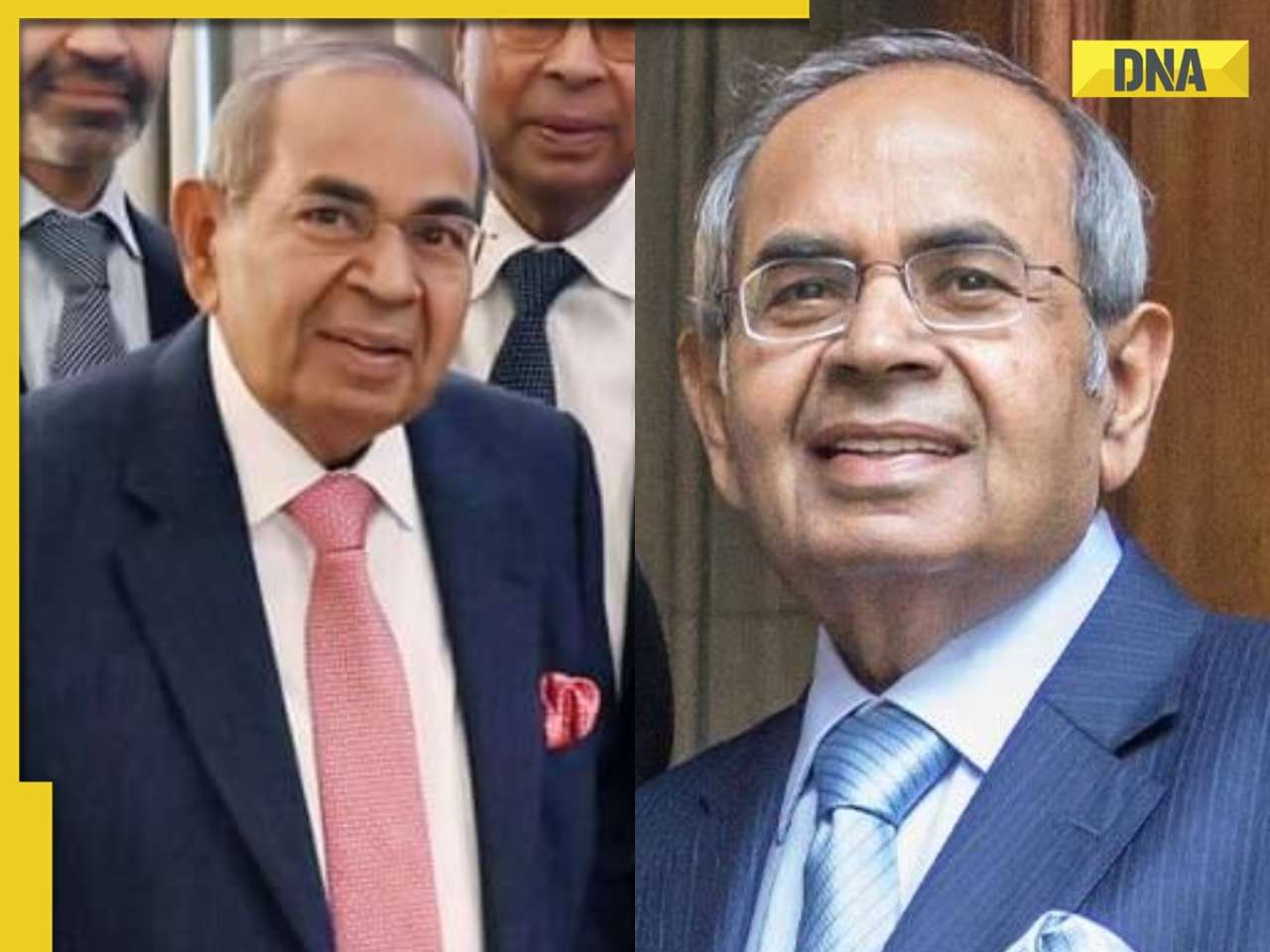
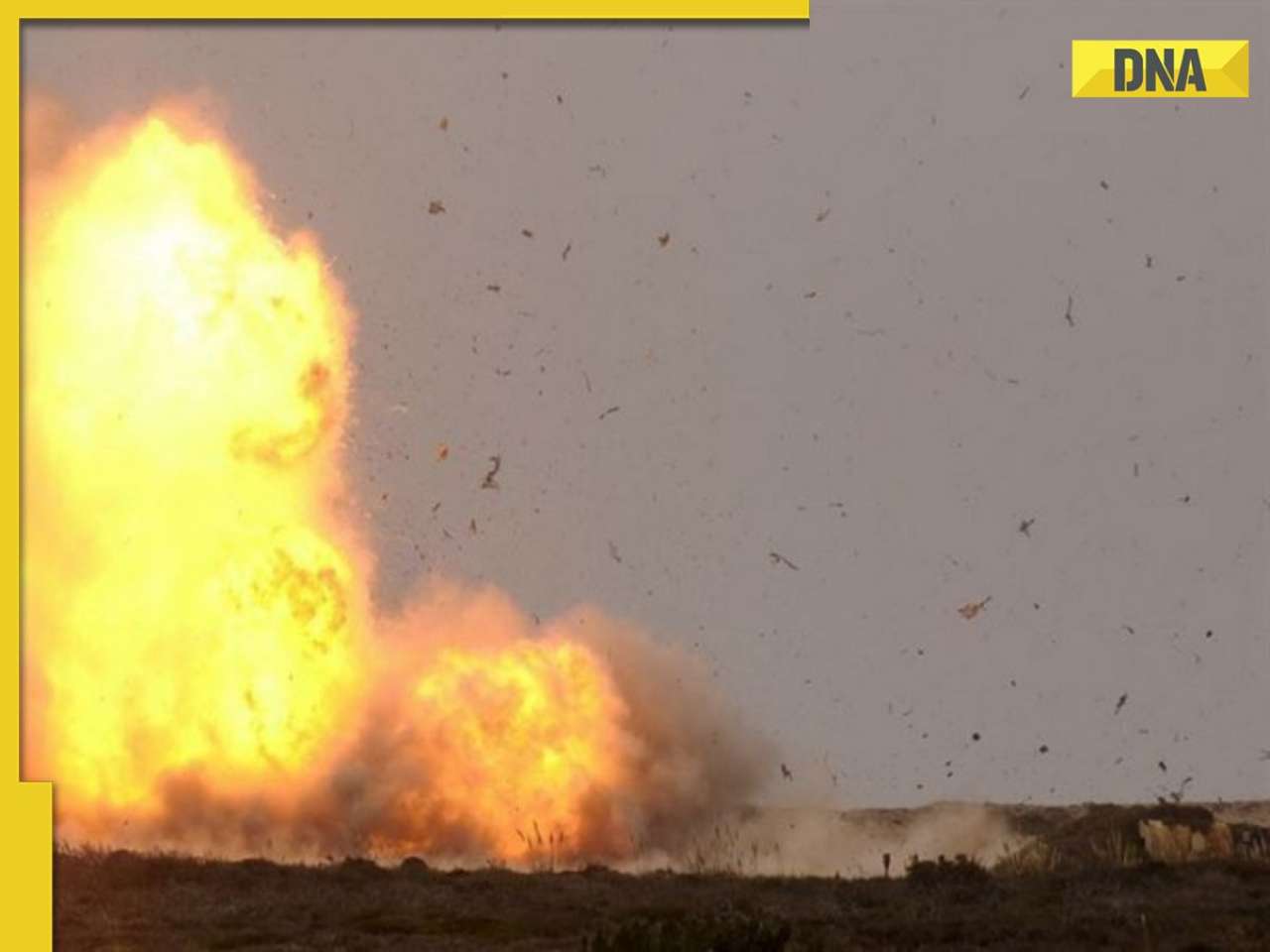
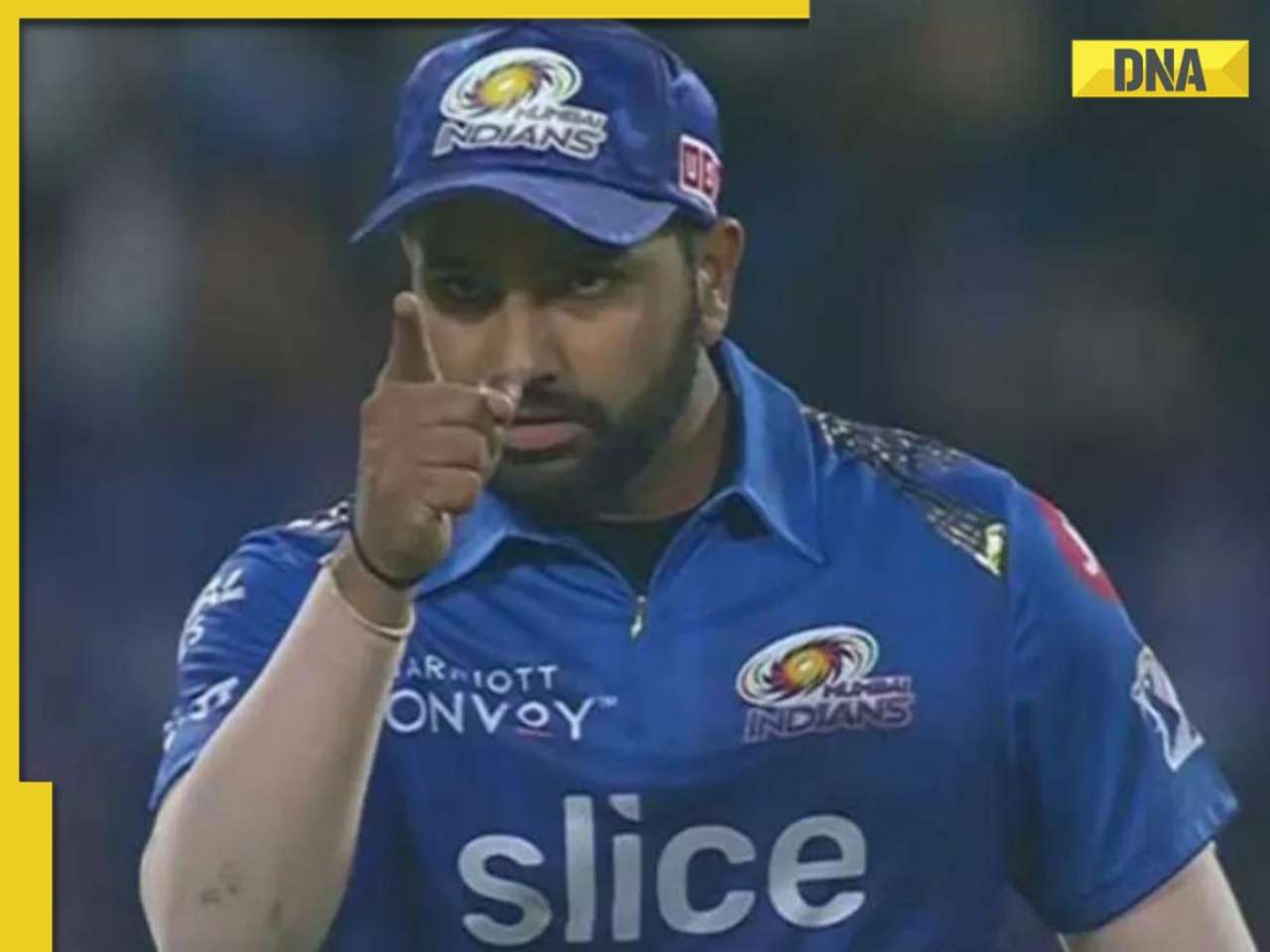
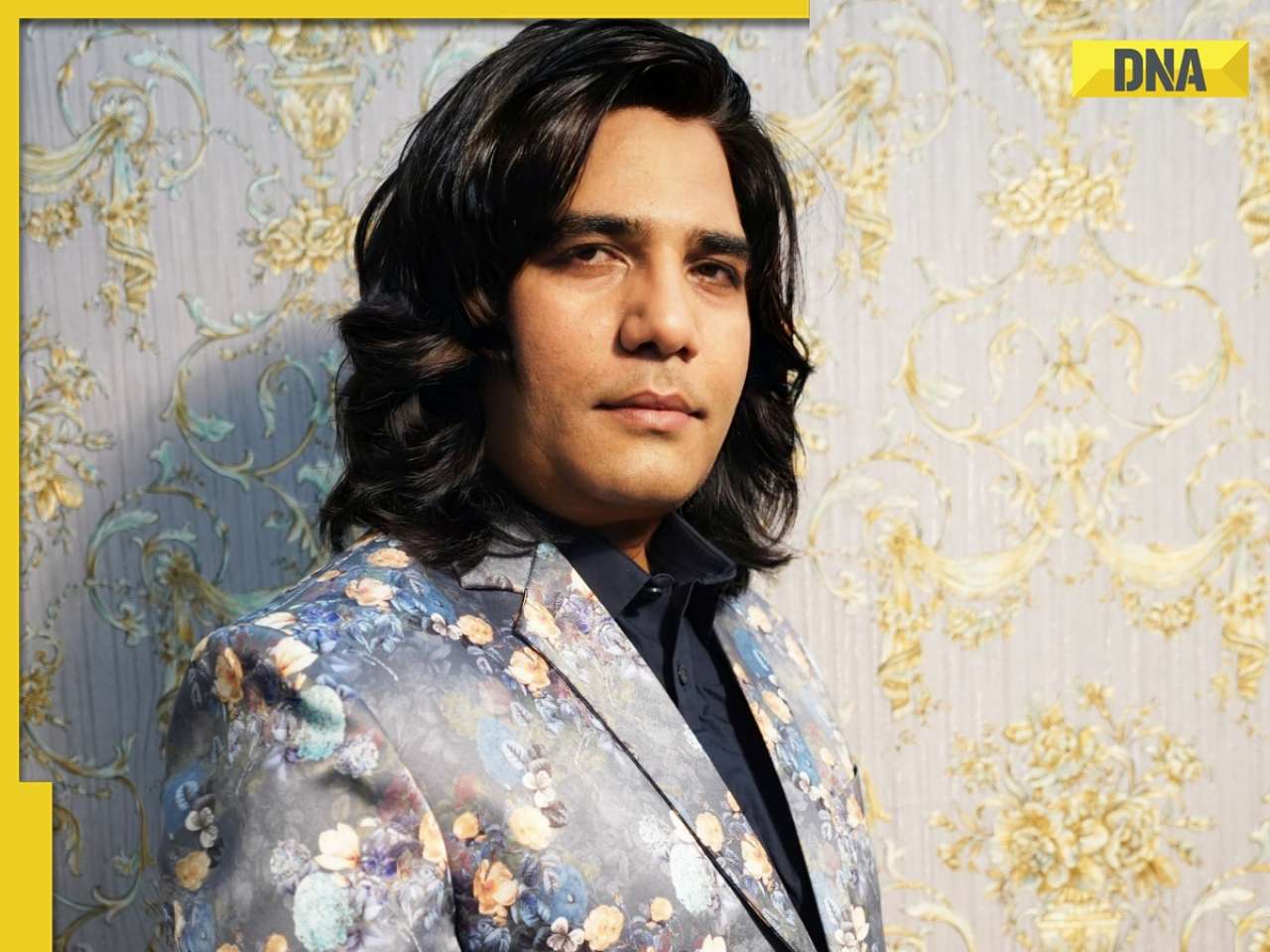
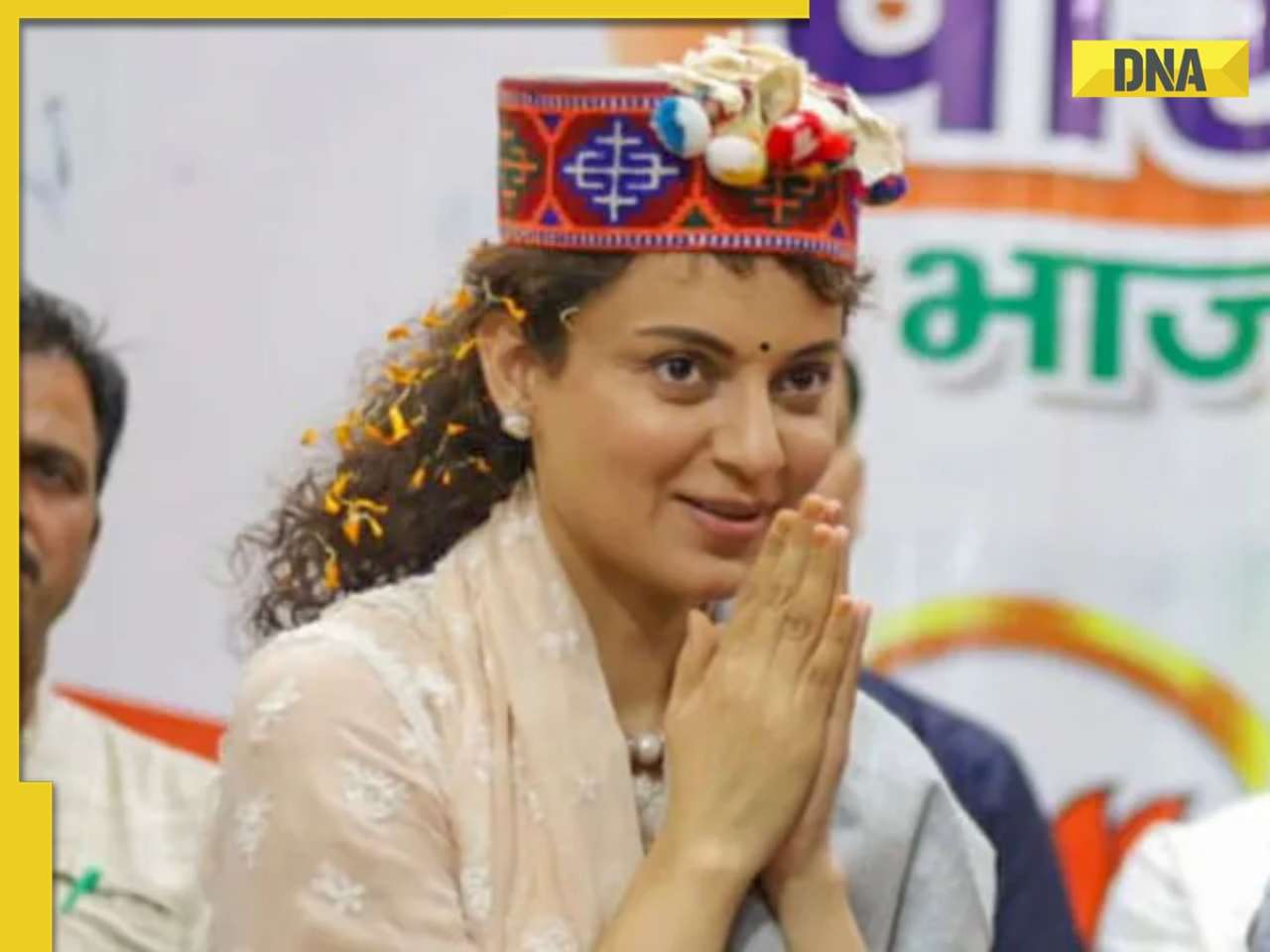






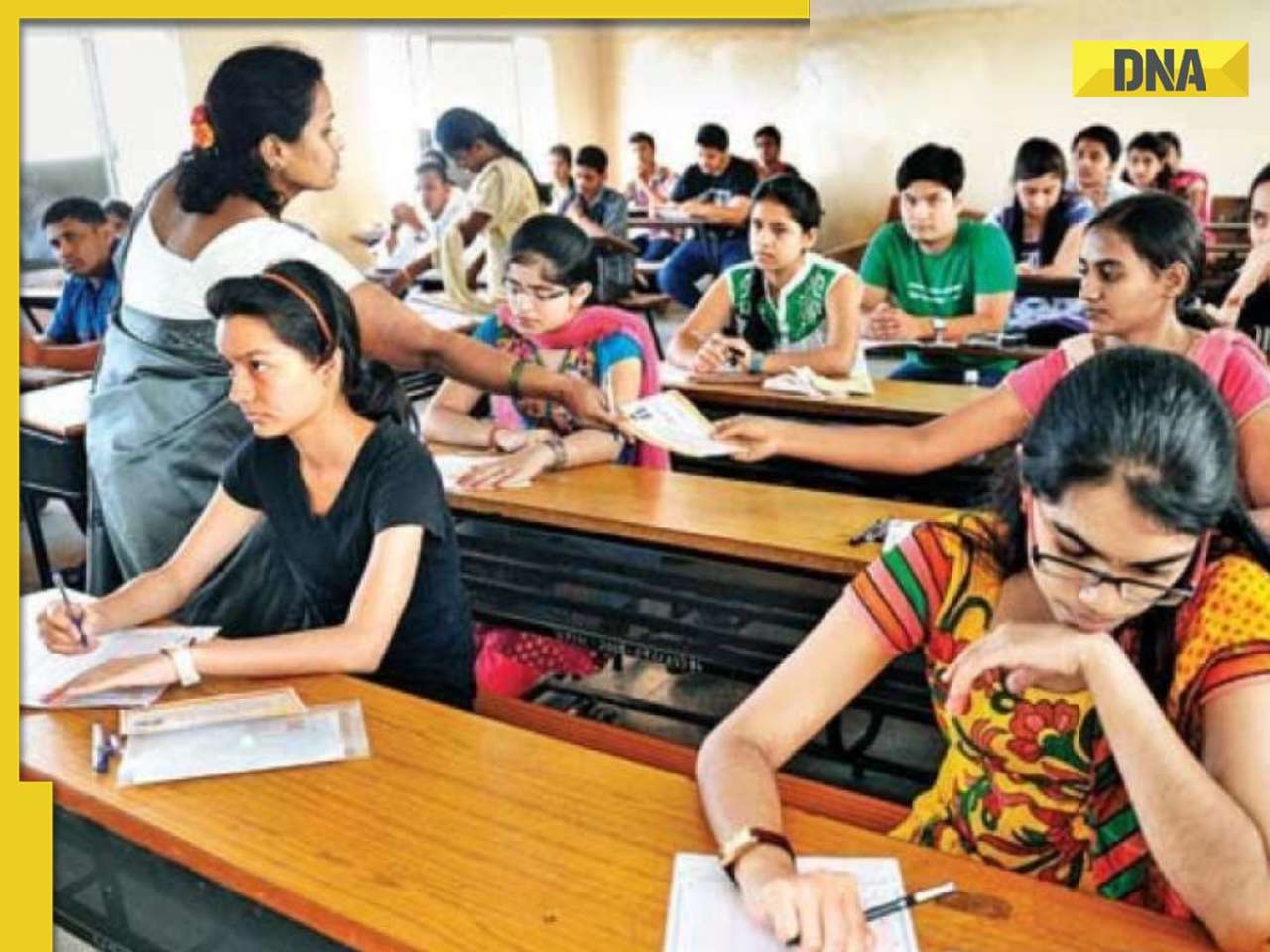
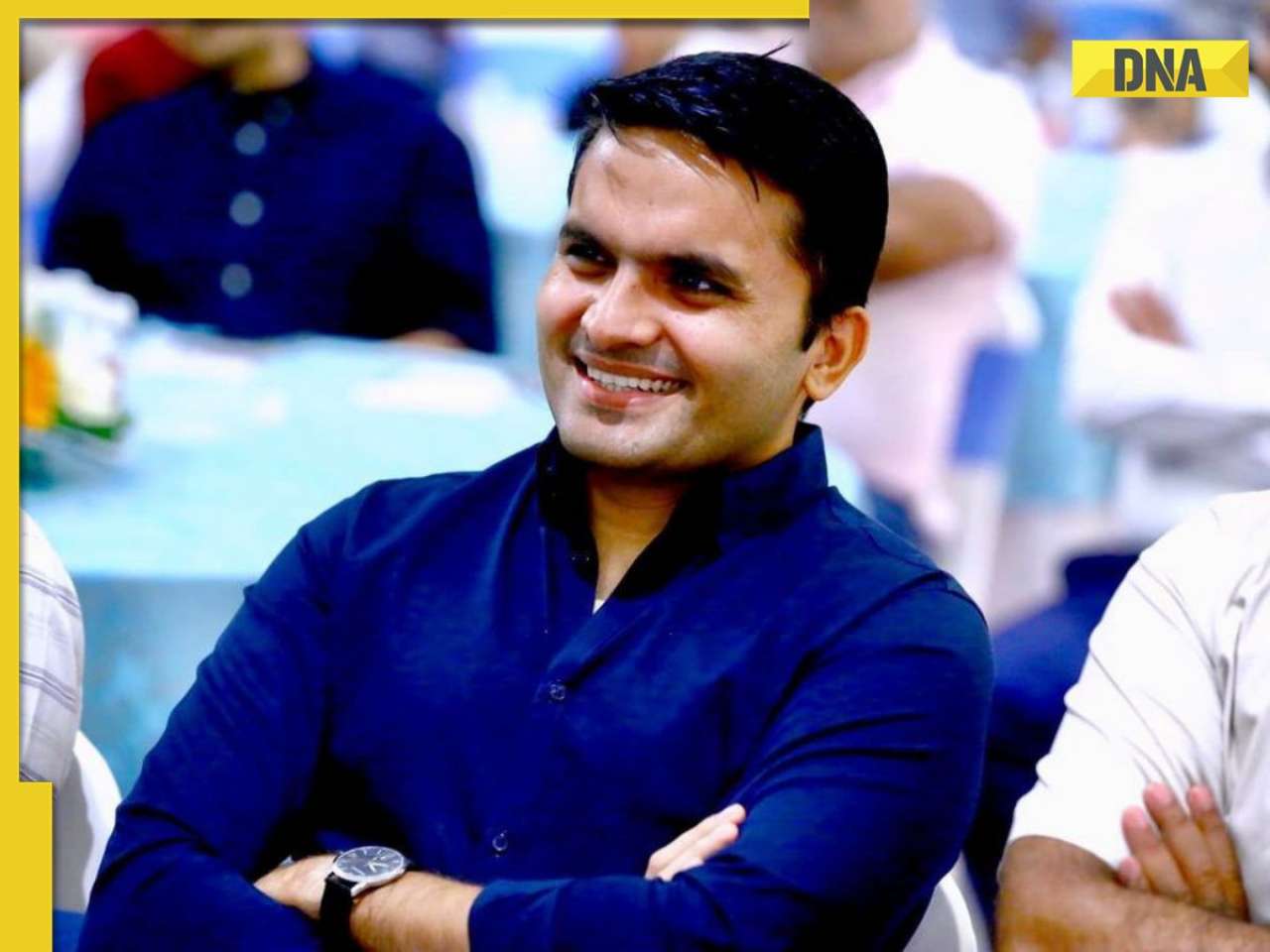

















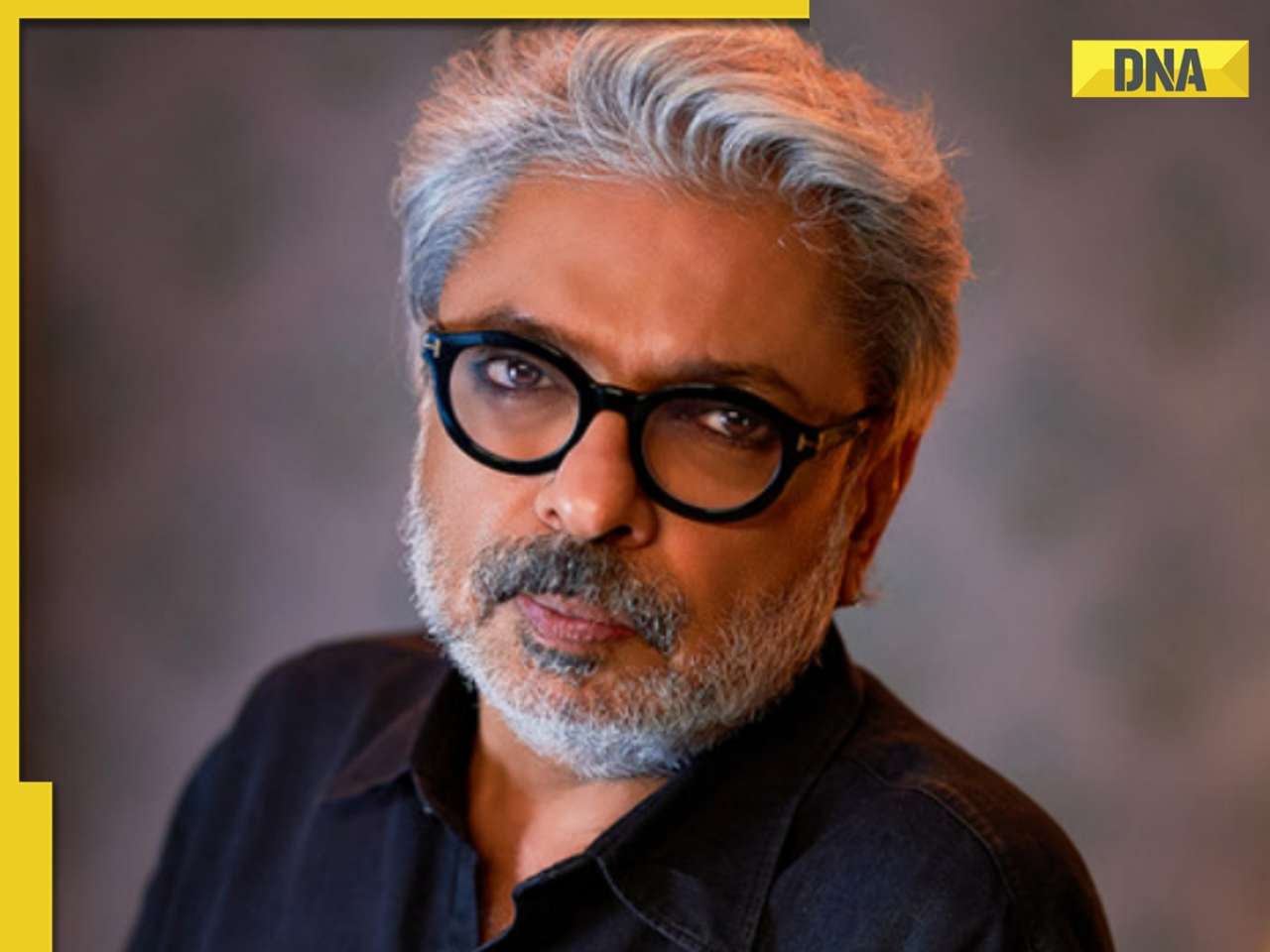
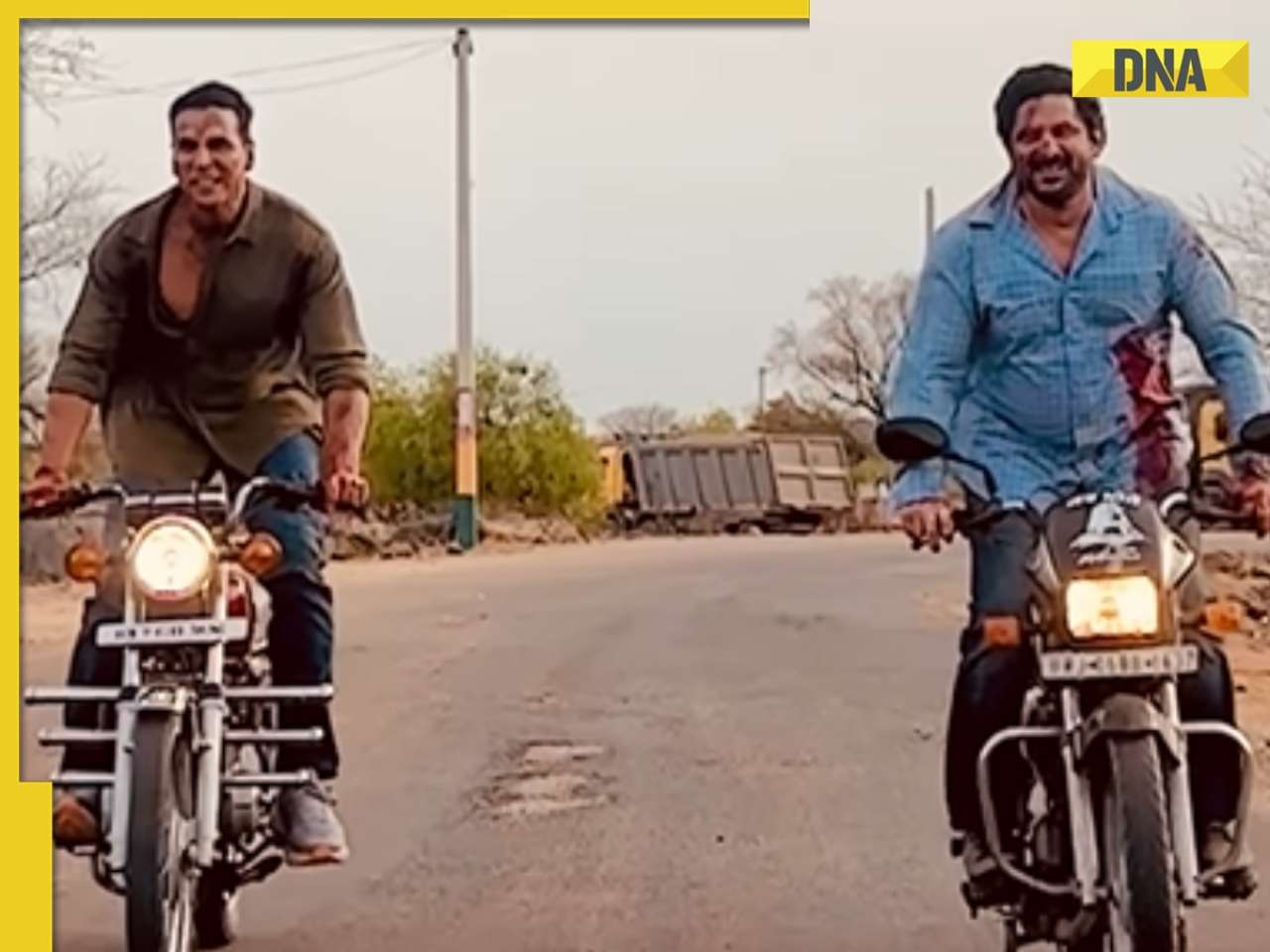

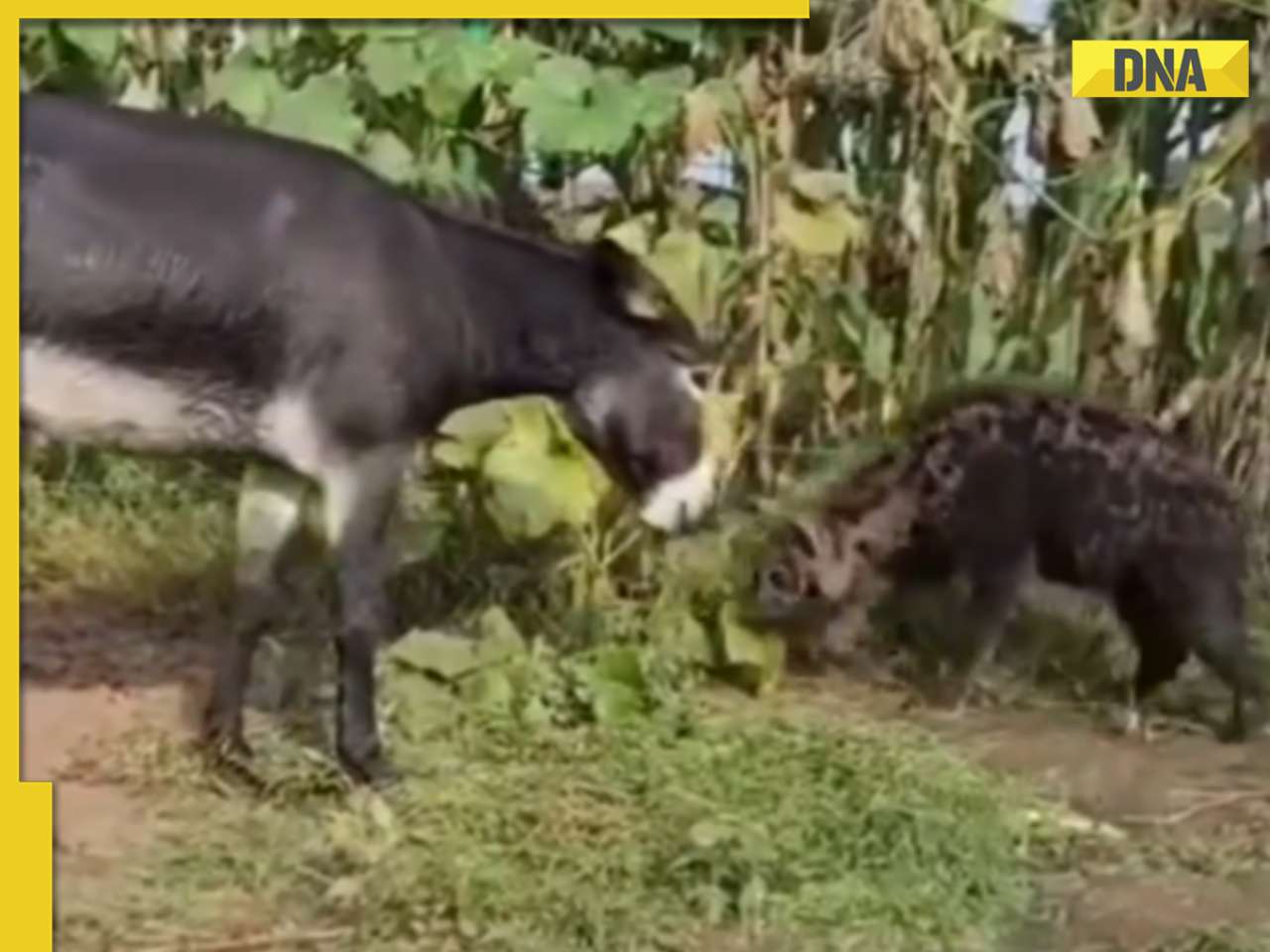

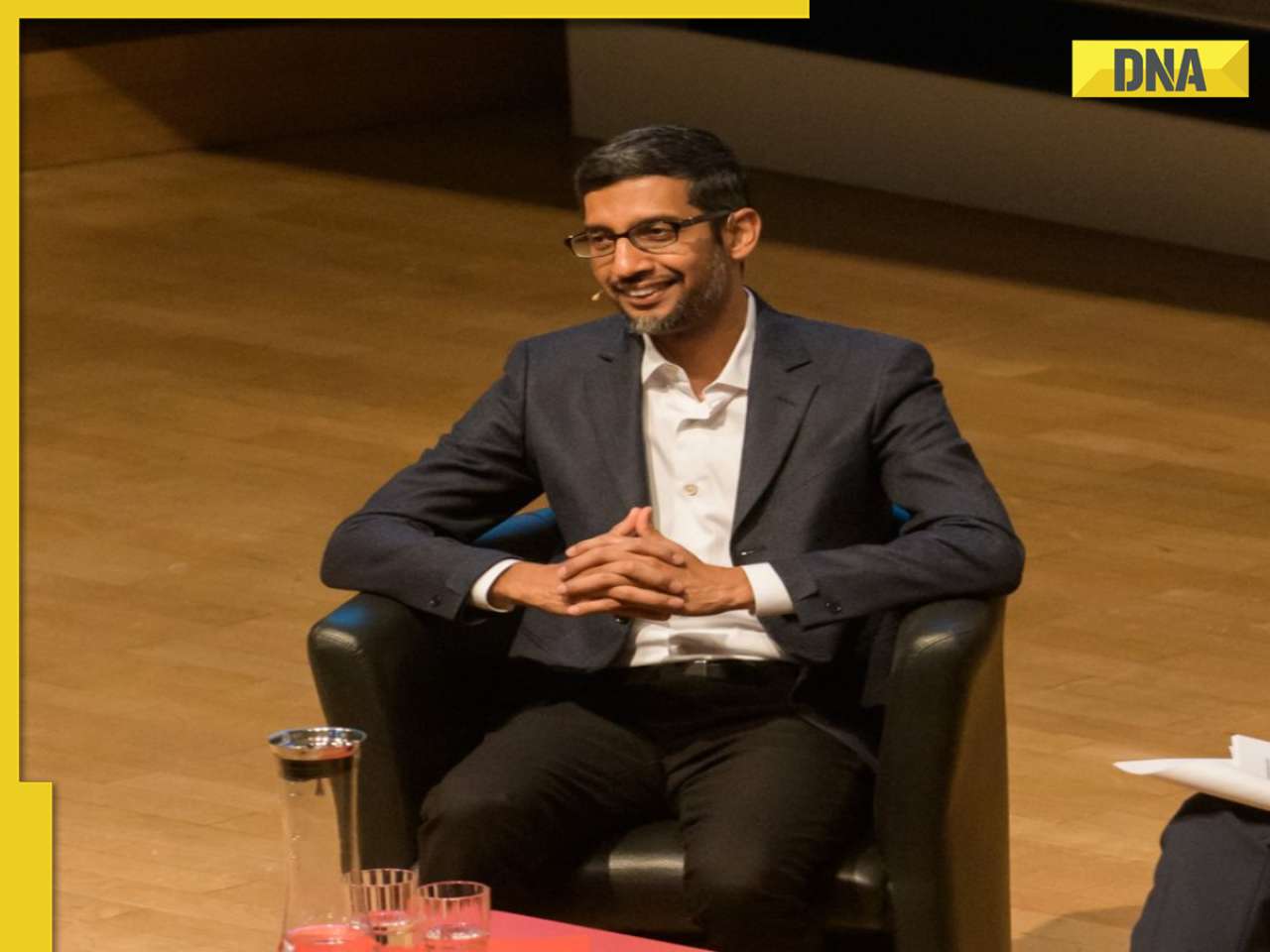
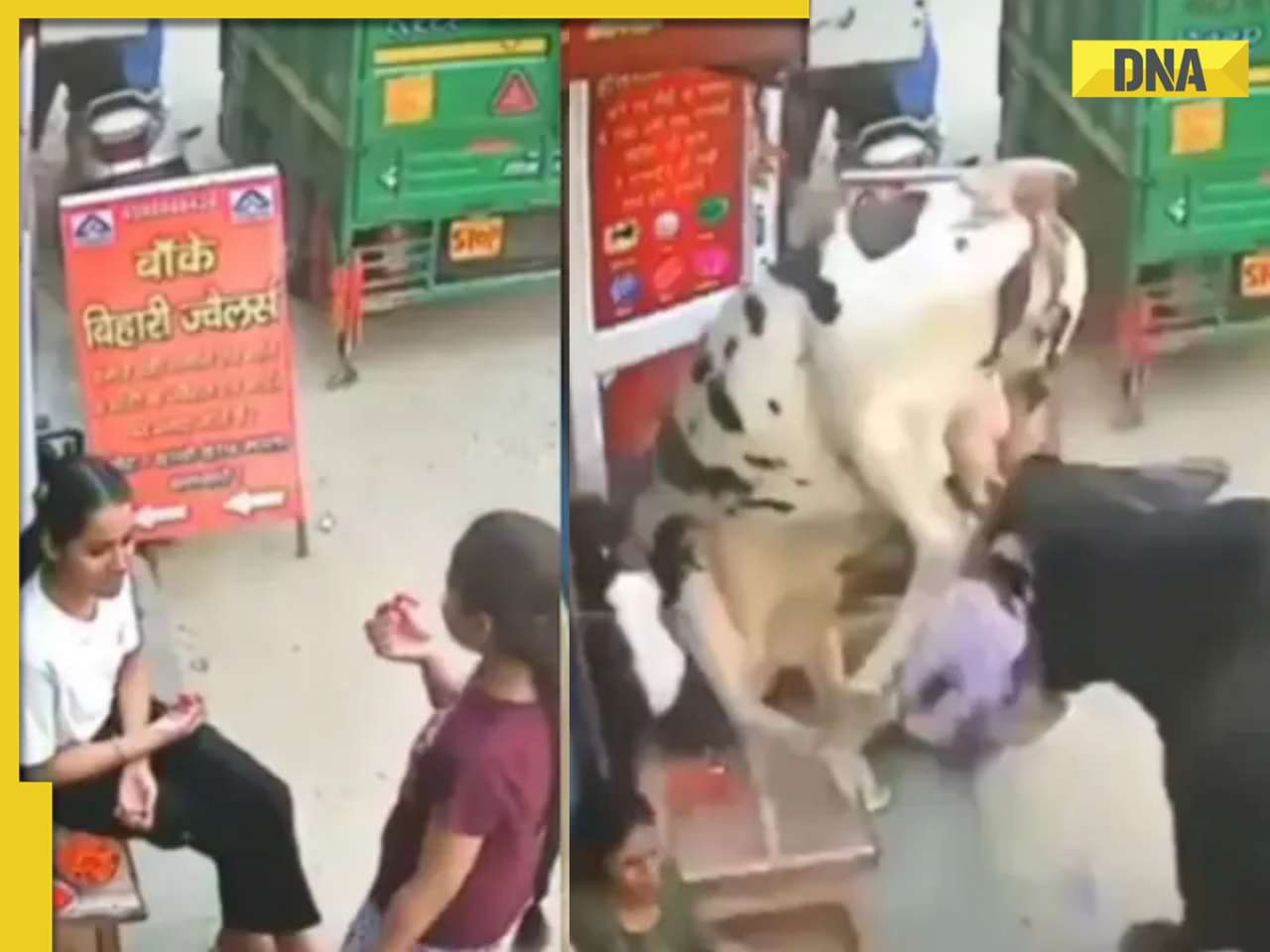
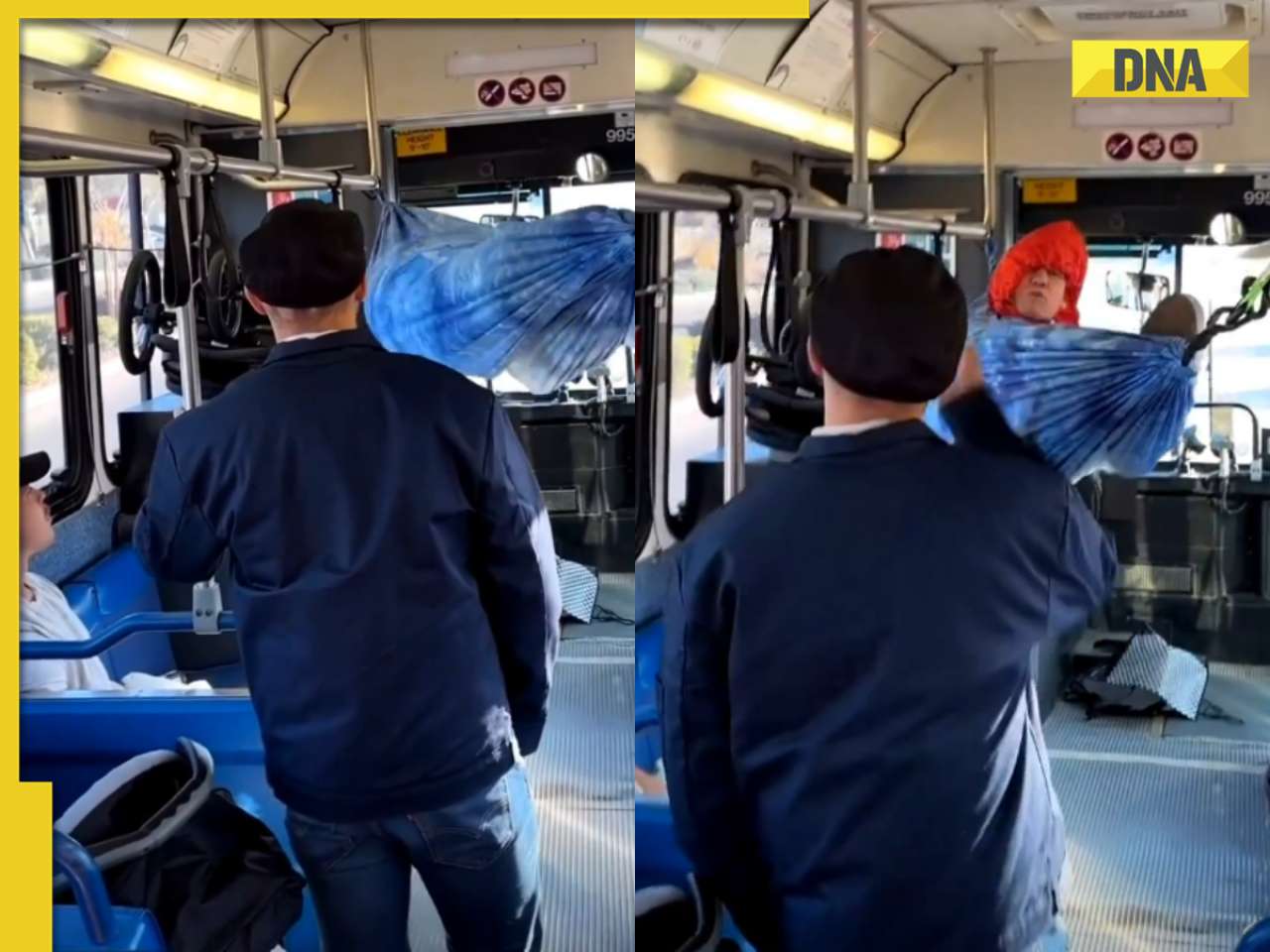




















)
)
)
)
)
)